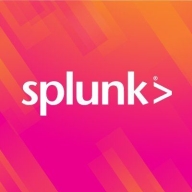

Splunk Enterprise Security and AWS Security Hub are both key competitors in the security management domain, focusing on log management and integration capabilities. Splunk appears to have a stronger edge due to its comprehensive search and visualization features.
Features: Splunk Enterprise Security offers robust log management, scalable deployment across various environments, and flexible integration options with other tools, enhancing its data analysis and visualization capabilities. AWS Security Hub, on the other hand, specializes in integrating AWS-native services, providing a unified security alert view that helps streamline AWS ecosystem management.
Room for Improvement: Splunk Enterprise Security could benefit from an improved user interface, reduced complexity in data visualization, and lower licensing costs. It also needs to simplify its integration process with various external systems. AWS Security Hub could enhance its alert management capabilities, improve its interface, and offer more real-time data analysis to keep up with modern security demands.
Ease of Deployment and Customer Service: Splunk Enterprise Security provides flexible deployment options across public, private, and hybrid clouds, coupled with strong community and technical support. AWS Security Hub is easier to integrate within AWS environments and offers cost-effective solutions but may require additional effort for multi-cloud environments, as it is primarily focused on the AWS ecosystem.
Pricing and ROI: Splunk Enterprise Security is perceived as more expensive due to its feature-rich offering but often justifies the cost with substantial ROI, especially for larger enterprises. AWS Security Hub offers a competitive, pay-as-you-go pricing model, which makes it more accessible for small to medium-sized businesses.


AWS Security Hub is a comprehensive security service that provides a centralized view of security alerts and compliance status across an AWS environment. It collects data from various AWS services, partner solutions, and AWS Marketplace products to provide a holistic view of security posture. With Security Hub, users can quickly identify and prioritize security issues, automate compliance checks, and streamline remediation efforts.
The service offers a range of features including continuous monitoring, threat intelligence integration, and customizable dashboards. It also provides automated insights and recommendations to help users improve their security posture. Security Hub integrates with other AWS services like Amazon GuardDuty, AWS Config, and AWS Macie to provide a unified security experience. Additionally, it supports integration with third-party security tools through its API, allowing users to leverage their existing security investments.
With its user-friendly interface and powerful capabilities, AWS Security Hub is a valuable tool for organizations looking to enhance their security and compliance posture in the cloud.
Splunk Enterprise Security is widely used for security operations, including threat detection, incident response, and log monitoring. It centralizes log management, offers security analytics, and ensures compliance, enhancing the overall security posture of organizations.
Companies leverage Splunk Enterprise Security to monitor endpoints, networks, and users, detecting anomalies, brute force attacks, and unauthorized access. They use it for fraud detection, machine learning, and real-time alerts within their SOCs. The platform enhances visibility and correlates data from multiple sources to identify security threats efficiently. Key features include comprehensive dashboards, excellent reporting capabilities, robust log aggregation, and flexible data ingestion. Users appreciate its SIEM capabilities, threat intelligence, risk-based alerting, and correlation searches. Highly scalable and stable, it suits multi-cloud environments, reducing alert volumes and speeding up investigations.
What are the key features?Splunk Enterprise Security is implemented across industries like finance, healthcare, and retail. Financial institutions use it for fraud detection and compliance, while healthcare organizations leverage its capabilities to safeguard patient data. Retailers deploy it to protect customer information and ensure secure transactions.
We monitor all Cloud Security Posture Management (CSPM) reviews to prevent fraudulent reviews and keep review quality high. We do not post reviews by company employees or direct competitors. We validate each review for authenticity via cross-reference with LinkedIn, and personal follow-up with the reviewer when necessary.